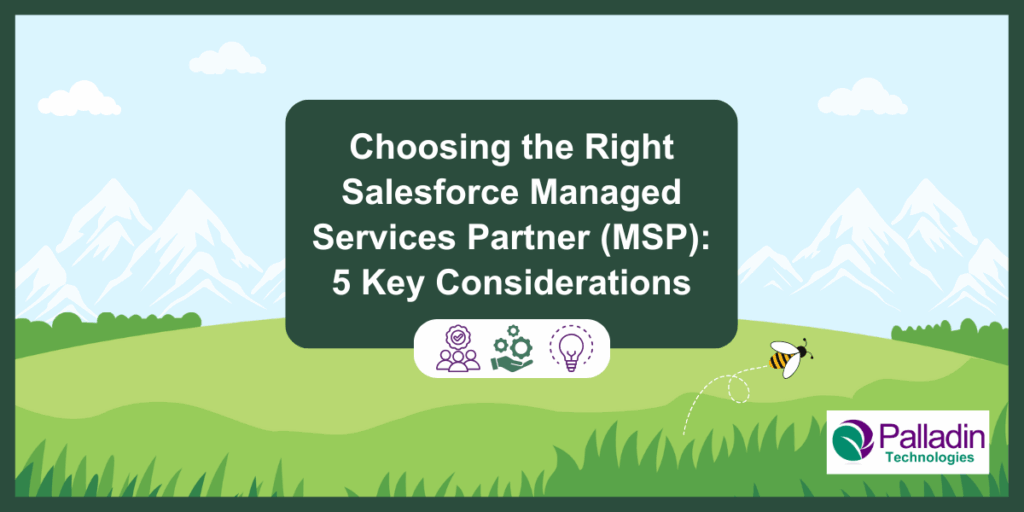In today’s climate of economic uncertainty and leaner internal teams, more Salesforce customers are turning to Managed Services Partners to supplement their staff with skilled, on-demand resources. With the rising costs of Salesforce talent—and the challenge of maintaining a full bench of specialized roles—outsourcing becomes a strategic solution.
If your company is navigating similar challenges, partnering with an MSP could be a smart move. As you begin your evaluation, here are the top five considerations to guide your selection:
1. Reputation and Customer Success
An MSP’s reputation is everything. You need a partner who consistently places client success at the heart of their work. Trust is Salesforce’s #1 core value—and your MSP should share that value without compromise.
As you begin evaluating potential MSPs, your first step should be confirming that any firm you’re considering is a member of this exclusive program. This designation signals proven expertise and a commitment to the highest standards of customer success.
Ask for references and speak directly with existing customers to learn about their experiences. You can also consult Salesforce AppExchange for verified reviews and customer ratings. An MSP’s reputation is built not on promises, but on results.
2. Industry Experience and Domain Expertise
Your industry isn’t generic—and your MSP shouldn’t be either. Seek partners who understand your sector intimately. For example, if you’re in telecommunications, does the MSP have experience with Communications Cloud? Are they members of TM Forum? Do they follow established industry best practices?
Don’t let your MSP “learn on your dime.” Probe their depth of industry knowledge, ask for case studies, and once again, check AppExchange reviews—many include industry tags to help you assess fit.
3. Salesforce Certifications and Talent Depth
Your MSP should bring a full spectrum of certified expertise across the Salesforce ecosystem—covering both your current environment and any future clouds you might adopt. Ensure they have personnel ranging from Admins to Solution Architects, Technical Architects, and Senior Developers.
Your MSP should not only maintain your org, but also serve as a trusted advisor—guiding future platform decisions and helping you scale efficiently and strategically.
4. Support Coverage and Availability
Support hours matter. Does your MSP offer coverage aligned to your business hours? Many partners utilize offshore resources, which can reduce costs but introduce time zone mismatches.
Even a skilled MSP can fall short if your issues only get attention “tomorrow.” Ensure you can count on responsive, real-time support when it matters most.
5. Pricing Models That Are Fair and Flexible
High-quality Salesforce professionals are expensive—for you and for your MSP. However, by using an MSP’s resources on a flexible, outsourced basis, you can control costs while accessing greater expertise.
Be cautious of MSPs who compete purely on low hourly rates. If a lower-cost partner takes three times as long to complete a task, they’re ultimately more expensive. Look instead for efficiency, transparency, and a subscription model that’s right-sized for your needs and budget.
Final Thoughts
There are other variables to consider—like tools, task tracking, reporting, invoicing terms, and early payment discounts—but these five areas are the foundation for a successful partnership.
At Palladin Technologies, we’re here to support your Salesforce journey. Whether you’re exploring MSP options or ready to make a decision, we’re happy to help.
Reach out anytime—we’d love to connect.
